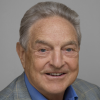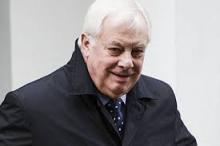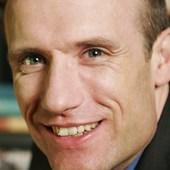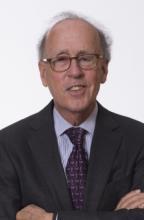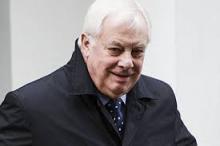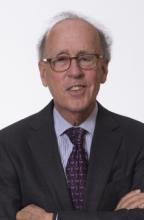Time to Fix the Euro
NEW YORK – The euro suffers from structural deficiencies. It has a central bank, but it does not have a central treasury, and the supervision of the banking system is left to national authorities. These defects are increasingly making their influence felt, aggravating the financial crisis.
The process began in earnest after the failure of Lehman Brothers, when on October 12, 2008, European finance ministers found it necessary to reassure their publics that no other systemically important financial institution would be allowed to fail. In the absence of a central treasury, the task fell to national authorities. This arrangement created an immediate and severe financial crisis in the new European Union member states that have not yet joined the euro. Eventually, it heightened tensions within the euro zone.
Most credit in the new member states is provided by euro-zone banks, and most household debt is denominated in foreign currencies. As euro-zone banks sought the protection of their home countries by repatriating their capital, East European currencies and bond markets came under pressure, their economies sagged and households’ ability to service their debts diminished. Banks with large exposure to Eastern Europe found their balance sheets impaired.
Individual member states’ capacity to protect their banks came into question, and the interest-rate spread between different governments’ bonds began to widen alarmingly. Moreover, national regulators, in their efforts to protect their banks, have unwittingly engaged in “beggar-thy-neighbor” policies. All this is contributing to internal tensions.
At the same time, the unfolding financial crisis has convincingly demonstrated the advantages of a common currency. Without it, some members of the euro zone might have found themselves in the same difficulties as Eastern European countries.
As it is, Greece is hurting less than Denmark, although its fundamentals are much worse. The euro may be under stress, but it is here to stay. Weaker members will certainly cling to it; if there is any danger, it comes from its strongest member, Germany.
Germany’s attitude toward the financial crisis is at odds with that of most of the world, but it is easy to understand why. It remains traumatized by its historical memory of the 1930’s, when runaway inflation in the Weimar Republic led to the rise of Hitler. While the rest of the world recognizes that the way to counteract the collapse of credit is to expand the monetary base, Germany remains opposed to any policy that might carry the seeds of eventual inflation. Moreover, while Germany has been a steadfast supporter of European integration, it is understandably reluctant to become the deep pocket that finances bailouts in the euro zone.
Yet the situation cries out for institutional reform, and Germany would benefit from it just as much as the others. Creating a euro-zone government bond market would bring immediate benefits, in addition to correcting a structural deficiency.
For one thing, it would lend credence to the rescue of the banking system and allow additional support to the EU’s newer and more vulnerable members. For another, it would serve as a financing mechanism for coordinated countercyclical fiscal policies. Properly structured, it would relieve Germany’s anxiety about other countries picking its pocket.
The euro zone’s bond and bill markets would complement but not replace individual states’ existing government bond markets. They would be under the control of euro-zone finance ministers. The regulation of the financial system would then be put in the hands of the European Central Bank, while the task of guaranteeing and, when necessary, rescuing financial institutions would fall to the finance ministers.
This would produce a unified and well-supported financial system within the euro zone. Even the United Kingdom, which is struggling with an oversized and undercapitalized banking system, might be tempted to join.
Euro-zone bonds could be used to assist the new EU states that have not yet joined the common currency area. They could also serve to increase the EU’s lending capacity beyond the current mandates of the European Investment Bank and the European Bank for Reconstruction and Development. The EU could then finance investment programs that combine a countercyclical function with important European objectives, such as an electricity grid, a network of gas and oil pipelines, alternative energy investments, and employment-creating public works in Ukraine.
All these investments would help break Russia’s stranglehold over Europe. The objection that they would take too long to serve a countercyclical purpose can be rejected on the grounds that the recession is also likely to last a long time.
Two thorny issues would need to be resolved – the allocation of the debt burden among member states, and the relative voting power of the different euro-zone finance ministers. Germany would consider the existing precedents, namely the EU’s budget and the composition of the ECB, unfair and unacceptable.
Although many member states will balk at agreeing to a solution that changes the EU’s internal balance of power, some concessions would be necessary to bring Germany on board. Usually it takes a crisis to bring about a compromise, but the crisis is now brewing, and the sooner it is resolved, the better.
Copyright: Project Syndicate, 2009.
If you wish to comment on this article, you can do so on-line.
Should you wish to publish your own article on the Facts & Arts website, please contact us at info@factsandarts.com.
This article is brought to you by Project Syndicate that is a not for profit organization.
Project Syndicate brings original, engaging, and thought-provoking commentaries by esteemed leaders and thinkers from around the world to readers everywhere. By offering incisive perspectives on our changing world from those who are shaping its economics, politics, science, and culture, Project Syndicate has created an unrivalled venue for informed public debate. Please see: www.project-syndicate.org.
Should you want to support Project Syndicate you can do it by using the PayPal icon below. Your donation is paid to Project Syndicate in full after PayPal has deducted its transaction fee. Facts & Arts neither receives information about your donation nor a commission.

